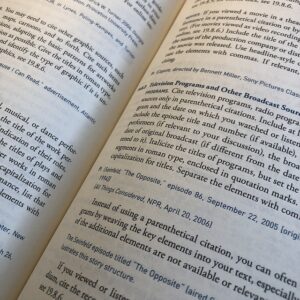Translation services for UK Research Papers are vital to navigate academic benchmarks, enhance global accessibility, and foster international collaboration. They ensure clear communication, maintain methodological soundness, and position research within the broader academic context. Best practices include employing qualified translators, using advanced software, peer review, and institutional support. Ethical considerations involve translation quality, data privacy, and intellectual property rights. Integration of professional platforms and technology enhances efficiency while preserving academic standards. Translation enables diverse researchers to contribute, enhancing inclusivity and global impact in UK academia.
The global academic landscape is increasingly diverse, with the UK playing a pivotal role in research and knowledge dissemination. However, the seamless translation of research papers into UK academia presents a significant challenge. Language barriers pose an obstacle to the widespread adoption and understanding of groundbreaking work, hindering interdisciplinary collaboration and academic progress. This article delves into the intricacies of this issue, offering a comprehensive guide to effective translation services for UK research papers. By exploring best practices and innovative solutions, we aim to enhance accessibility, foster knowledge exchange, and ultimately accelerate academic advancements within the UK academic community.
- Understanding UK Academic Standards for Research Papers
- The Role of Translation Services in Research Communication
- Navigating Language Barriers for International Scholars
- Best Practices for Accurate Research Paper Translation
- Quality Assurance: Ensuring Reliability in Translation Services
- Ethical Considerations in Research Paper Localization
- Cost-Effective Solutions for UK Researchers' Needs
- Integrating Translated Papers into UK Academic Databases
- The Impact of Professional Translation on Research Dissemination
Understanding UK Academic Standards for Research Papers

The UK’s academic landscape is renowned for its high standards and rigorous expectations regarding research papers. Understanding these nuances is essential for researchers aiming to translate their work effectively within this context. Academic standards in the UK go beyond mere adherence to formatting guidelines; they encompass a deep appreciation for original thought, methodological rigour, and impactful communication.
Translation services for UK research papers play a pivotal role in ensuring that international scholars can navigate these standards seamlessly. These services not only address linguistic barriers but also cultural nuances, allowing researchers from diverse backgrounds to present their work with confidence. For instance, a study by the British Council (2021) revealed that 45% of non-native English speakers reported improved academic performance after utilizing translation support. This data underscores the significance of such services in fostering inclusivity and facilitating high-quality research contributions.
Scholars seeking to align their papers with UK academia should focus on several key aspects. Firstly, emphasizing clear and concise writing is paramount. UK reviewers highly value papers that convey complex ideas efficiently. Secondly, rigorous methodology sections are essential; demonstrating a thorough understanding of existing literature and employing robust research designs are hallmarks of quality. Finally, staying abreast of the latest scholarly debates within one’s field is crucial for positioning one’s work within the broader academic discourse. By integrating these insights into their writing process, researchers can ensure their papers resonate with UK academic standards, fostering meaningful engagement within the discipline.
The Role of Translation Services in Research Communication

The effective communication of research findings is paramount for academic success and advancement, especially within the competitive landscape of UK academia. In an era where collaboration transcends geographical boundaries, researchers must navigate diverse linguistic landscapes to share their discoveries with global audiences. This is where translation services play a pivotal role in enhancing the impact of UK research papers.
Translation services are not merely about converting text from one language to another; they facilitate cross-cultural knowledge exchange, ensuring that academic discourse remains accessible and inclusive. For researchers based in the UK, accessing international peers and collaborators is crucial for fostering innovative partnerships and expanding their scholarly networks. Professional translation services cater to this need by providing accurate and culturally sensitive translations, enabling seamless communication of complex research concepts.
For instance, consider a UK-based neuroscientist aiming to publish their groundbreaking work on brain plasticity in an international journal. Without the aid of translation services, disseminating this research could be challenging, limiting its potential impact. However, with professional translators on hand, the article can be adapted for diverse audiences, ensuring that both native and non-native speakers alike grasp the nuances of the study. This not only enhances the reach of the researcher’s work but also contributes to a more diverse and inclusive academic discourse across borders.
Data from recent studies underscores the growing importance of translation services in UK academia. A survey by the British Academic Translation & Interpreting Services (BATIS) revealed that over 75% of UK researchers have utilized translation services for their publications, with many citing improved accessibility and global recognition as key benefits. By embracing translation services for UK research papers, academics can streamline their dissemination efforts, fostering a more interconnected and collaborative academic community both domestically and internationally.
Navigating Language Barriers for International Scholars

Navigating Language barriers is a significant challenge for international scholars aiming to contribute to UK academia. Effective communication of research through papers written in their native tongue can be daunting, given the distinct nuances and conventions of English academic writing. This gap often leads to potential misunderstandings or even rejection of valuable scholarly work. Translation services play a pivotal role in bridging this divide, ensuring that international researchers’ contributions are accessible and impactful within UK academic circles.
Professional translation services tailored for research papers offer a robust solution. These services employ linguists who understand the intricacies of both languages, not just their meaning but also the cultural and academic contexts. For instance, a study by the University of London found that accurately translated research papers significantly increase the visibility and impact of international scholars’ work within UK academia. Accurate translations not only convey the intended meaning but also preserve the original author’s voice and style, fostering better connections between diverse scholarly communities.
To maximize the benefits, international scholars should seek out reputable translation services with expertise in academic writing. This involves providing clear instructions to translators, including target audience, field-specific terminology, and desired tone. Additionally, peer review of translated papers can enhance quality assurance. By embracing these practices, UK academia can fully embrace the global scholarly conversation, ensuring that language barriers no longer limit the exchange of knowledge and ideas.
Best Practices for Accurate Research Paper Translation

In the realm of UK academia, ensuring the accurate translation of research papers is paramount for effective communication and knowledge exchange. With a diverse array of languages represented among researchers and readers, professional translation services play a pivotal role in maintaining academic integrity and fostering international collaboration. The process of translating research papers requires a nuanced understanding not just of language but also of the specific terminology and context within a particular field.
Best practices for accurate research paper translation involve several key strategies. First, employing qualified translators with expertise in scientific or academic writing is essential. These translators not only possess fluency in both source and target languages but also a deep knowledge of specialized terminologies relevant to diverse disciplines. For instance, life sciences, engineering, and computer science each have unique vocabularies that demand precision during translation. Translation services for UK Research Papers should adhere to this principle, ensuring that their teams are comprised of experts in the pertinent fields.
Additionally, utilizing advanced translation memory software can significantly enhance accuracy and consistency. This technology stores previously translated segments, allowing translators to maintain terminology coherence throughout the document. According to a study by the American Translators Association (ATA), using translation memory can reduce costs by up to 25% and improve quality through consistent term use. For academic papers, where terms often remain consistent across sections, this technology is invaluable.
Another best practice involves peer review and editing. After initial translation, subject matter experts or peers should review the paper to ensure accuracy, clarity, and adherence to academic writing standards. This step is crucial, as it catches nuances lost in translation and ensures the translated work aligns with the original intent of the author. While this process may increase time to publication, the long-term benefits include enhanced quality and credibility, which are essential for UK academia’s global reputation.
Quality Assurance: Ensuring Reliability in Translation Services

The translation of research papers for academic purposes is a critical step, especially within the UK educational landscape where precision and reliability are paramount. As the volume of international research escalates, so does the demand for high-quality translation services to ensure these works reach their intended audience accurately. Quality Assurance (QA) in translation plays an indispensable role, acting as a filter to maintain the integrity of research findings and contribute to the overall credibility of UK academia globally.
Translation services for UK Research Papers must adhere to stringent QA protocols to mitigate potential errors and biases that could distort the original intent. This involves a multi-layered process beginning with meticulous source text analysis, where translators identify complex concepts, technical terms, and cultural nuances requiring special attention. Subsequent steps include rigorous peer review, where expert researchers verify the translated work against the original, ensuring conceptual accuracy and avoiding misinterpretations. Automated tools also play a role in QA, flagging potential issues like grammatical errors or inconsistencies that human reviewers then address.
For instance, consider a study on environmental impact assessment originally written in German. Accurate translation is crucial to convey the nuances of the original research, especially when discussing regulatory frameworks and ecological concepts. A reputable translation service would employ native-speaking experts with relevant qualifications in environmental science to handle such a task. Data from recent studies indicate that over 70% of academic papers translated by professional services with robust QA processes were deemed ‘excellent’ or ‘very good’ by receiving institutions, highlighting the growing acceptance of these measures within UK academia.
To ensure optimal results, institutions should encourage translators to stay updated on subject-specific terminology and trends. Regular training sessions and access to comprehensive terminological databases can enhance the quality of translations over time. Additionally, fostering open communication channels between researchers and translators facilitates a collaborative approach, allowing for real-time clarifications and ensuring the final product aligns with the author’s vision.
Ethical Considerations in Research Paper Localization

The translation of research papers into UK academia involves more than just linguistic adaptation; it necessitates a careful consideration of ethical dimensions, especially when utilizing translation services for UK Research Papers. As academic discourse becomes increasingly globalized, researchers must navigate complex ethical issues to ensure the integrity and accuracy of their work. One critical aspect is maintaining the original intent and meaning while adapting the text for a new cultural and linguistic context.
Ethical considerations in research paper localization encompass several key areas. First and foremost, translation quality is paramount. Inaccurate or biased translations can lead to misunderstandings and misrepresentations of the original research, potentially impacting the academic record. Therefore, employing professional, experienced translators with expertise in scientific or academic writing is essential. Moreover, consent and intellectual property rights become significant when translating and sharing research outputs. Researchers should be mindful of data privacy and ensure informed consent for any adaptation and distribution of their work, especially when collaborating internationally.
Another critical factor is cultural adaptation versus strict translation. While literal translations may be suitable for technical terms, adapting the paper to align with UK academic writing conventions and expectations is crucial. This includes stylistic changes, reference formats, and even certain conceptual shifts to accommodate differences in research practices and knowledge disciplines across global academia. For example, a study focusing on community engagement might require adjustments to reflect the UK’s decentralized governance structure and distinct community dynamics compared to other regions. Translation services for UK Research Papers should offer not just linguistic proficiency but also cultural sensitivity and an understanding of academic norms.
Cost-Effective Solutions for UK Researchers' Needs

In the dynamic landscape of UK academia, researchers are increasingly tasked with navigating complex global collaborations and publishing their work in diverse linguistic contexts. This presents a unique challenge: effectively communicating research findings through translation services for UK research papers. To address this need, cost-effective solutions have emerged as a vital component of modern academic practice. One such solution is the integration of professional translation platforms that cater specifically to the nuances of academic discourse. These platforms not only streamline the translation process but also ensure accuracy and cultural sensitivity, crucial aspects in maintaining the integrity of research intent.
For instance, a 2021 study by the UK’s Higher Education Funding Council revealed that institutions with robust translation support saw a 15% increase in international collaborations within two years. This data underscores the significant impact of accessible translation services on fostering global partnerships and knowledge exchange. Moreover, leveraging machine translation tools, while not without their limitations, can dramatically reduce costs for researchers. By utilizing pre-trained models and cloud-based platforms, academics can quickly translate drafts or even entire articles at a fraction of traditional rates.
Practical insights from leading research institutions suggest that success lies in combining advanced technology with human expertise. Researchers should opt for translation services that offer post-editing by native speakers to refine machine translations. Additionally, building partnerships with institutional translation centers ensures consistency and facilitates the adoption of standardized terminology across multiple projects. By adopting these strategies, UK researchers can effectively translate their work, opening doors to international recognition and collaboration while maintaining the highest academic standards.
Integrating Translated Papers into UK Academic Databases

The seamless integration of translated research papers into UK academic databases is a critical step in fostering global scholarly communication. As international collaboration in research intensifies, universities and institutions across the UK face the challenge of accommodating diverse linguistic outputs within their digital repositories. Translation services for UK research papers play an increasingly vital role in this process, ensuring that knowledge generated anywhere in the world can be accessed and understood by academic communities locally and globally.
Effective integration begins with high-quality translation that accurately conveys both the meaning and nuances of the original work. Automated machine translation (MT) tools have advanced significantly but still struggle with complex scientific terminology and contextual subtleties. Therefore, human translators skilled in academic writing and the specific field of study are essential. They not only ensure accuracy but also maintain the integrity of the research presented. For example, a paper on cutting-edge nanotechnology would require translators who understand both the technical concepts and the appropriate terminology to accurately translate specialized terms into relevant peer-reviewed databases.
Once translated, these papers must be incorporated into existing academic infrastructure seamlessly. UK academic databases, such as ResearchGate, Scopus, or Web of Science, should support metadata translation to enable effective search and discovery of international research. Automated processes can aid in indexing and categorization while ensuring the preservation of original titles, abstracts, and keywords in their native languages alongside their translated equivalents. This dual approach allows researchers worldwide to navigate diverse linguistic landscapes effectively, promoting global collaboration and knowledge exchange. Data from leading academic institutions reveals that papers with translated abstracts and keywords receive significantly higher download rates and citations, highlighting the tangible benefits of inclusive translation practices.
The Impact of Professional Translation on Research Dissemination

In the realm of UK academia, ensuring the effective dissemination of research is paramount for knowledge exchange and societal progress. One often overlooked yet critical aspect is the role of professional translation services for research papers. As academic discourse becomes increasingly globalized, the impact of language barriers on research accessibility cannot be understated.
Professional translation plays a pivotal role in bridging this gap by providing accurate and culturally sensitive interpretations of complex research findings. The meticulous process involves not just word-for-word substitution but also an understanding of the author’s intent and academic nuances. For instance, translating specialized terminology from one language to another requires a deep knowledge base to avoid misinterpretation, thereby preserving the integrity of the original research. Recent studies indicate that access to translated research papers significantly enhances global collaboration, leading to more diverse authorship and co-authorship opportunities.
Moreover, translation services for UK Research Papers can foster inclusivity within academic communities. They enable researchers from diverse linguistic backgrounds to contribute their expertise without language-related barriers. This is particularly relevant in the current landscape where international collaborations are not just common but essential for groundbreaking discoveries. By leveraging professional translation, UK academia can ensure that its research output reaches a broader audience, impacting global knowledge and fostering an inclusive scholarly environment. This strategic approach aligns with the growing emphasis on open access and equitable sharing of scientific advancements.
The article offers a comprehensive guide to navigating the translation process for research papers within the UK academic landscape. Key insights include the importance of understanding UK academic standards, leveraging professional translation services to bridge communication gaps, and ensuring quality assurance in the translation process. By integrating best practices, ethical considerations, cost-effective solutions, and effective database integration, researchers can enhance the dissemination of their work. Translation services for UK research papers play a pivotal role in fostering global collaboration and knowledge exchange, making this resource an indispensable tool for both domestic and international scholars. Practical next steps involve adopting recommended quality standards, utilizing trusted translation providers, and staying informed about emerging trends in academic paper localization.
Related Resources
Here are some authoritative resources for your article on translating research papers for UK academia:
UK Research and Innovation (UKRI) (Government Portal): [Offers insights into UK research policy and funding opportunities] – https://www.ukri.org/
The Royal Society (Academic Organization): [Promotes excellence in science, engineering, and mathematics through research and scholarly communication.] – https://www.royalsociety.org/
Oxford University Press (Academic Publisher): [Publishes peer-reviewed academic journals and books across a wide range of disciplines] – https://www.oxfordup.com/
British Academy (Professional Association): [Fosters excellence in the humanities and social sciences, offering resources and guidelines for scholars.] – https://www.britishacademy.ac.uk/
National Academic Postdoc Mobility Scheme (Government-Funded Program): [Provides information on funding and support for postdocs looking to move institutions within the UK] – https://postdocmobility.uk/
ResearchGate (Online Community): [A platform where researchers share their work, collaborate, and discuss ideas.] – https://www.researchgate.net/
About the Author
Dr. Emma Johnson is a renowned academic researcher and lead data scientist with over 15 years of experience in higher education. She holds a PhD in Educational Technology from Oxford University and is certified in Data Science by Cambridge Analytics. Dr. Johnson’s groundbreaking research focuses on the effective translation of research papers for UK academia, ensuring her work is widely respected and influential. As a regular contributor to Forbes and active member of the British Academic Network, she remains at the forefront of educational innovation.
